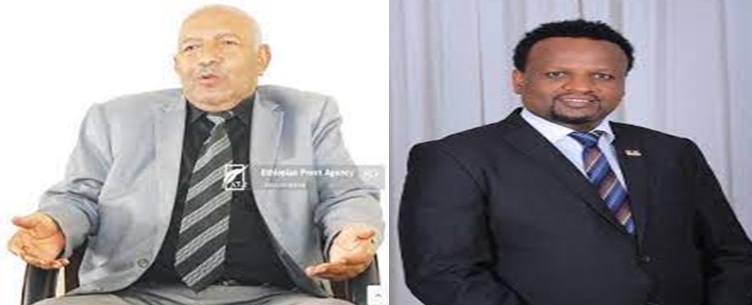
BY MENGISTEAB TESHOME
Over the last few years, Ethiopia has experienced political and ethnic divisions; driven mainly due to the predisposition of elites to resolve political disagreements through frictions rather than compromise.
To arrest such unviable practices in nation’s politics culture and ensure lasting peace, the country has now established a National Dialogue Commission and is undertaking various activities to hold an inclusive nationwide political dialogue with a view to resolving political differences in a more civilized manner through dialogue.
The dialogue is believed to be a platform that will enable actors to discuss fundamental national issues openly and ensure national consensus across the nation.
Since the National Dialogue Commission has become operational, it has been performing activities that lay the foundation to hold an effective national dialogue. Commission Chairman, Professor Mesfin Araya affirmed that the historic national dialogue will begin by the coming March 2023. In this regard, the role religious leaders and institutions can play in ensuring productive national dialogue is immense.
Focusing on this matter, The Ethiopia Herald had approached Assistant Professor Adem Kamil, Private Researcher on people to people relations. As to him, the old practices [political and ethnic divisions] did not yield any good for Ethiopia rather than leading the nation to instability. The conflicts have consumed the most productive part of the society; the youth.
Tuning a civil approach is important to the land. In this regard, religious leaders and institutions can play a productive role in taming the community at large; and the new blood with high moral values and integrity; and instilling what sovereignty and safeguarding human rights mean.
“In my view, religious leaders should take the lion’s share in facilitating local dialogue initiatives and involving in wider mediation and peace building efforts.” It is high time for religious leaders and institutions to discuss more on unity, peace and development than ever with the community at the grassroots level.
“I believe that they have a great capacity to ensure productive national dialogue. In my opinion, all segments of the society should contribute to the success of the dialogue in every possible way. This includes religious leaders and institutions.”
ISA60 International Ministry Ethiopia Director Dr. Thomas Melese for his part said that, historical analysis demonstrates that procedural fairness and inclusivity are key features of national dialogues that lead toward lasting and sustainable peace. Above all, ensuring the participation of civic societies and religious leaders is also crucial.
“Religious institutions and leaders have to open doors for the fruition of the commitments. Conflicts are parts of human life and history, the very important point is the way we try to deal with; and manage them.”
The establishment of the Ethiopian National Dialogue Commission is a great opportunity to ensure national consensus through discussions and dialogue, he added. As to him, the major problem in Ethiopia is that dialogues and discussions are not practiced among the community; and high level officials; rather tend to pass directions in a rush mentality to the lower ladder, which brings back many confrontations.
“I think the national dialogue is a promising platform to address the differences for the common good of all; and enable to add values in shaping the political power transfer and how we should deal with our national affairs.”
The institutions and leaders should be active participants in the process to translate the national dialogue goals in a more independent fashion. He further noted that, everyone has responsibility and should add value to make the national dialogue productive. The large-scale dialogue and reconciliation efforts to address the country’s deep-rooted societal and political divisions are timely.
“We are witnessing that the vicious circles of political and economic turmoil improvised the nation in the face of the world. Religious leaders and institutions should teach communities about forgiveness and conciliation to heal the land and build national consensus.
The Ethiopian Herald January 24/2023





